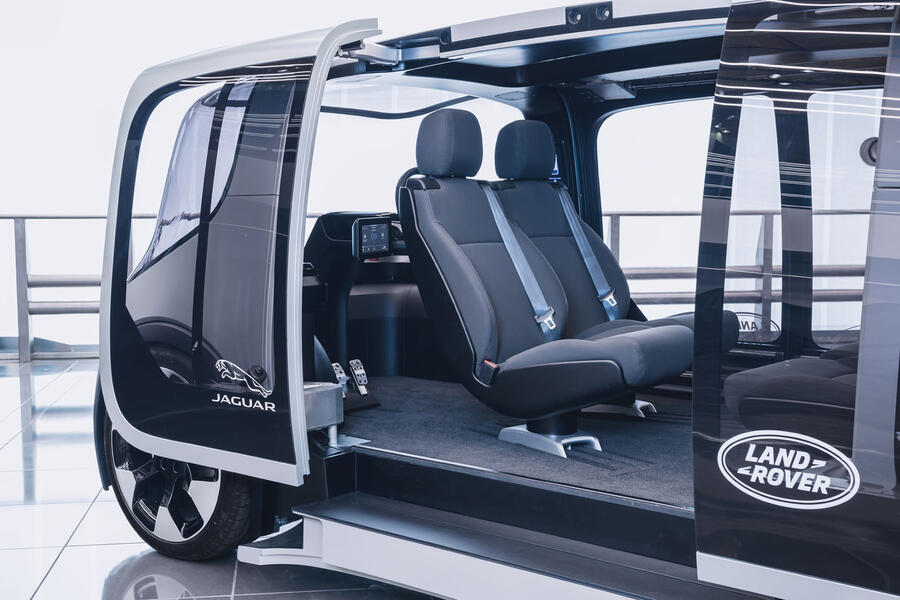[ad_1]
“Jaguar Land Rover understands the trends shaping modern societies,” said Speth. “Through this project we are collaborating with the brightest minds in academia, our supply chain and digital services to create connected, integrated mobility systems, the fundamental building blocks for Destination Zero. Vector is precisely the brave and innovative leap forward needed to deliver on our mission.”
The vehicle being readied for the Coventry trials is just four metres long and designed for life in the city, with its battery and drivetrain components packed into a flat floor, allowing maximum design flexibility for the body above. The experimental car’s cabin space allows seating configurations for private or shared use, or for commercial use, such as last-mile deliveries.
Project Vector is being developed at NAIC, Speth explained, to give it the advantages of a start-up project, in particular agility and easy collaboration with academic and outside partners. The project’s director is Dr Tim Leverton, an eminent engineer and researcher who was previously chief engineer at Tata Motors and has worked on projects as diverse as the JCB Dieselmax record car and BMW’s original Rolls-Royce Phantom.
The project has been financed by Jaguar Land Rover, but has been structured as a start-up company which plans to seek outside investment.

“The megatrends of urbanisation make connected urban mobility systems necessary and inevitable,” said Leverton.
“Shared and private vehicles will share spaces with and be connected to public transit networks, so you can travel on-demand and autonomously. Future urban travel will be a composite of owned and shared vehicles, as well as public transport. Our vision shows the vehicle as a flexible part of the urban mobility network that can be adapted for different purposes.”
READ MORE
The future of Jaguar Land Rover, according to CEO Ralf Speth
Aston boss: cost of autonomy will force mass car firm mergers
Bosch says it could launch an autonomous car tomorrow
[ad_2]
